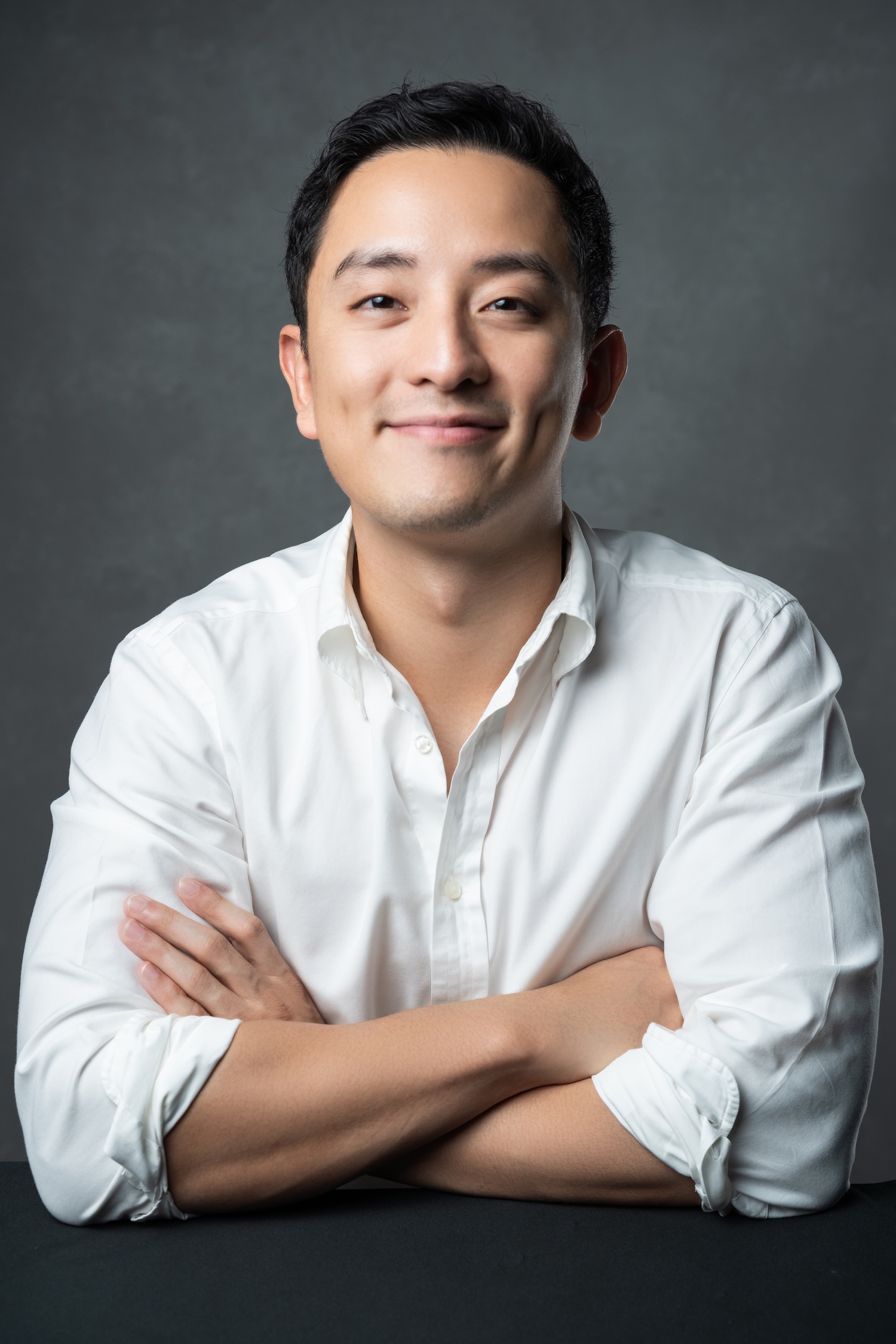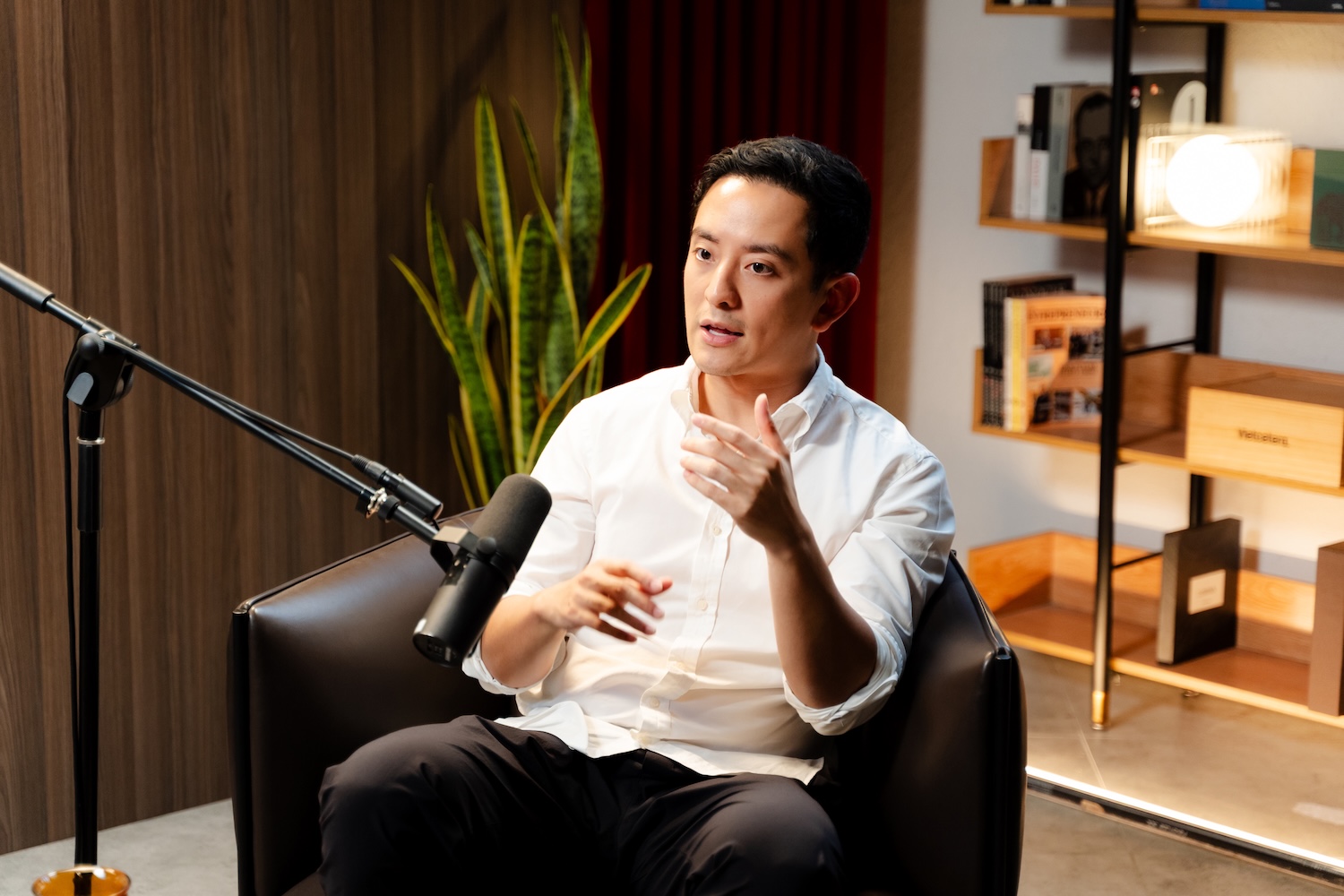Across Southeast Asia, from Bangkok to Jakarta to Ho Chi Minh City, millions of young people leave their hometowns every year in search of opportunity in major cities. But very few go the other way. Returning home, to work or to build a career, remains an uncommon choice. For many, the idea of “going back” still conjures images of fish farming and growing vegetables. For those in creative industries, the question is often: where would I even begin?
CK Cheong, CEO of Fastwork (Fastlance Vietnam) and a 2025 Gen.T Leaders of Tomorrow honoree by Tatler Asia, believes that mindsets can change. And he started with himself. After years living in the U.S., he left a consulting role at Deloitte and chose to come home, not to advise billion-dollar deals, but to build something new with freelancers and young professionals striving to succeed in the digital economy.

With Fastwork, CK wants to redesign the flexible work ecosystem - one where anyone, whether in a village or a metropolis, can access global opportunities without leaving their roots behind.
Closing The Gap Between Downtown And Hometown
Not many people know that before entering Vietnam as Fastlance, Fastwork was Thailand’s most downloaded app, surpassing even entertainment giants like Facebook and TikTok. It was the result of years of development. Now, after more than six years of operation, it has connected businesses and freelancers, creating millions of jobs. For CK, that’s something to be proud of.
Fastwork was born from a simple observation: across Southeast Asia - not just in Thailand, economic opportunity is highly centralized. Wealth and jobs are concentrated in cities, while rural areas fall behind.
There’s a word “hillbilly”, used in some countries to refer to people from rural areas. In the U.S., every state has its own “unique selling point”: Boston for education, New York for financial districts, Disney for vacation, etc. But in Thailand, Vietnam, Indonesia, and many others, everything seems to revolve around the capital, sometimes the megacities. “It’s hard to find a top company in Thailand that’s not based in Bangkok.” Outside the capital, resources are scarce, and opportunities even rarer.
CK wondered: Why should everything be in Bangkok? Why not across the whole country?
He realized the solution lies in empowering SMEs, startups, freelancers, and young talent. To reduce urban concentration, people in remote areas must have real opportunities to grow and thrive.

“I want to disperse talents back to their hometown, so they’ll spend there and make money there. That creates real demand. More customers for street food vendors. More tenants for rental homes. That’s how local economies grow.”
To him, it’s like solving traffic congestion. “The answer isn’t more bridges. It’s moving people out of crowded cities. That’s decentralization. Just like in the U.S., where growth is spread across states, not just in Washington, D.C. That’s what drives long-term prosperity.”
Talent Doesn't Need To Move If Opportunity Does
For CK, creating jobs in local areas isn’t just economic policy. It’s also a way to keep young people close to their roots. If they have decent jobs and a good quality of life, many would choose to stay near family rather than move to overloaded cities.
“Most people want to live near their parents. And outside Bangkok, life is much cheaper. If you could earn a Bangkok salary and live in the countryside, why wouldn’t you?” he said in the Vietnam Innovators Podcast.
Many young people go to cities, work non-stop, and send money home. But that money often goes into short-term expenses, such as debts, rent, even lottery tickets.
CK believes that for real development, money needs to go into local production and businesses. “Building companies outside Bangkok. That’s the real solution.”
He gives an example: “If I were a young freelancer who moved from Bangkok to Hat Yai, after a while I would think: There’s no speakeasy bar here. Why not start one?” To CK, that’s what happens when creative people return home. They see the gaps and build something new.
“If you bring young talent back to smaller cities, those cities will grow naturally. These are the people who bring energy and take risks.”

Southeast Asia: The World’s Next Growth Engine
Some say CK is too optimistic. Others think, “This is the government’s job.” But he believes entrepreneurs are the ones who make real change.
He sees three reasons why Southeast Asia is the right place and time for Fastlance.
- First, the region is stable. While the U.S., Europe, and the Middle East face conflict and division, countries like Vietnam and Thailand enjoy peace and regional cooperation. And investors always look for stability.
- Second, Southeast Asians understand both East and West. They use everything from Instagram to TikTok, and even WeChat. They navigate global platforms with ease. This makes the region a cultural and digital crossroads.
- Third, global migration is moving south - to places that are warmer and safer. Southeast Asia fits both.
CK sees more than market potential. He sees long-term value. “I didn’t come here just to expand. I came because Southeast Asia, with its young population and strong entrepreneurial spirit, is the world’s next big opportunity.”
“Vietnam has nearly 100 million people, a big market. Why wouldn’t a foreign entrepreneur want to go here? Are they really going to go on Fiver or Upwork and hire a foreign writer or editor for local campaigns? They need Vietnamese talent. But they don’t know where to look. That’s what Fastlance solves.”
Unlike platforms like Fiverr or Upwork, which charge high commissions, Fastlance operates on an advertising-based model, earning revenue by selling ad space to interested partners. Freelancers keep all their earnings. Clients are protected with escrow and transparent ratings.
“I want a platform where every deal starts with trust, not blind faith.”
In the next year, CK’s goal is to build a strong network of Vietnamese freelancers, not just for local jobs, but to export services globally. So a young person in Lào Cai or Cà Mau can work on projects for clients across Vietnam or even overseas, without leaving home.

“To build a real digital economy, freelancers can’t be treated as side gigs forever. They must be recognized as core labor and supported with proper infrastructure.”
Fastlance is CK’s answer to that challenge and his way of connecting Southeast Asia to compete on the world stage.
Watch the full Vietnam Innovators episode here:
